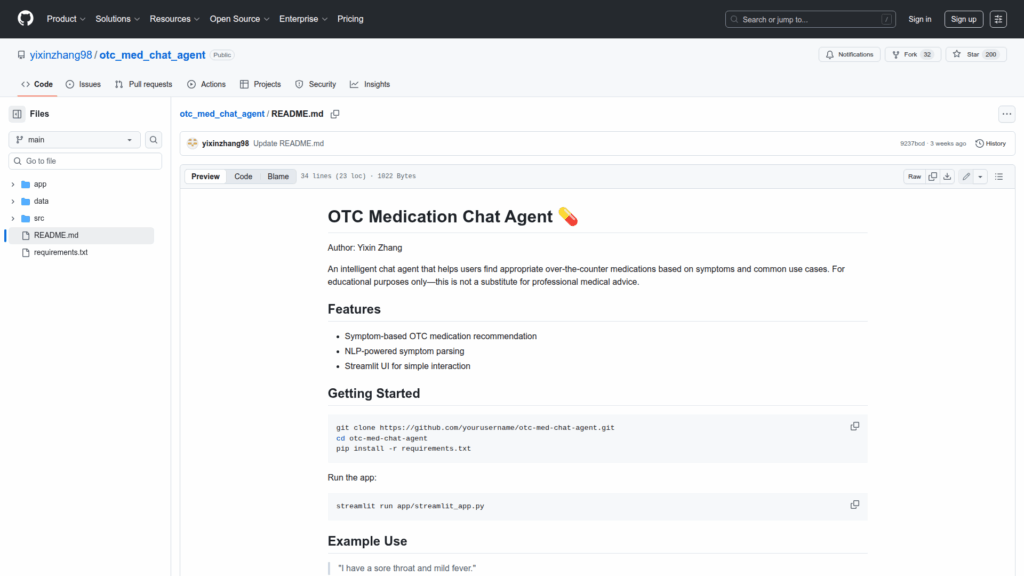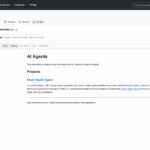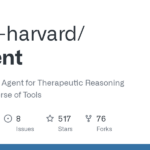otc_med_chat_agent
Basic Information
This repository provides an intelligent chat agent designed to help users identify appropriate over-the-counter (OTC) medications based on reported symptoms and common use cases. It is intended for educational and demonstration purposes and explicitly notes it is not a substitute for professional medical advice. The project implements NLP-driven symptom parsing to interpret user input and map symptoms to typical OTC options. It includes a simple interactive Streamlit user interface so users can enter symptoms and receive suggested remedies and follow-up prompts such as whether they want dosage guidance. The README shows basic local setup steps using pip and Streamlit, indicating the project is a runnable prototype for exploring symptom-to-OTC recommendation workflows rather than a clinical decision tool.








